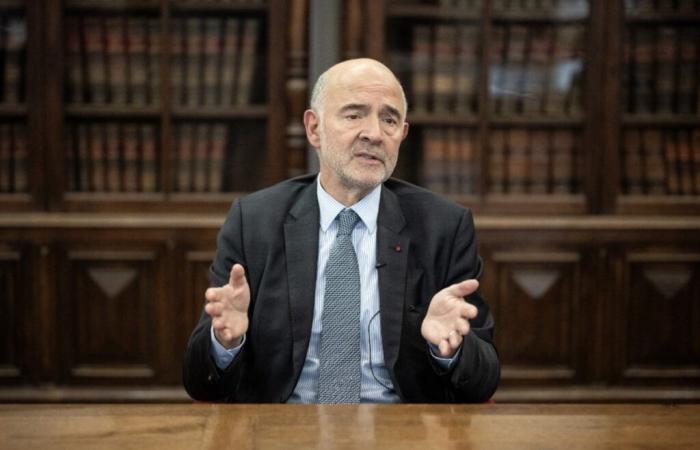
The HCFP is chaired by Pierre Moscovici, first president of the Court of Auditors. In Toulouse, October 16, 2024. (AFP / LIONEL BONAVENTURE)
The end-of-management finance bill (PLFG) is presented to the Council of Ministers this Wednesday, November 6.
Slogan: avoid another “major slippage” in public accounts. This Wednesday, November 6, the High Council of Public Finances (HCFP) called on the government to
retain “prudent assumptions” in its financial texts.
The HCFP issues this recommendation in its opinion on the
end of management finance bill (PLFG) presented to the Council of Ministers this Wednesday,
which sets the budgetary adjustments to be made at the end of the year.
The HCFP judges that the growth hypothesis of 1.1% this year which appears there “remains realistic”, that an average inflation of 2.1% is “also realistic”, although “a little high” while it is now well below 2% at an annual rate. The forecast of a public deficit of 6.1% of GDP in 2024 “remains plausible”. But the HCFP notes that the latter, estimated at 4.4% in the 2024 finance bill (PLF), experienced
“a major slippage”, due to overly optimistic initial revenue forecasts.
France, third most indebted country in the euro zone
These are now expected at 1,250.7 billion euros instead of 1,292.2 billion in the PLF,
“a gap of 41.5 billion euros”,
notes the High Council. The PLFG also includes
15 billion euros in additional spending
: those of the State are revised very slightly downwards, but those of Social Security are increased by 3.5 billion euros, and, above all, those of local authorities are increased by 13.4 billion euros . This “shows
the necessity,
to present a reliable public finance trajectory, to retain prudent assumptions in financial texts, particularly in terms of revenue forecasting or moderation of expenditure by local authorities”, notes the HCFP, which is chaired by Pierre Moscovici, first president of the Court of Auditors.
For the High Council, “the trajectory of the medium-term budgetary and structural plan” (PSMT) presented in October, which provides for the return of the public deficit to below 3% of GDP in 2029 instead of 2027 until then, is
“a more relevant reference”.
But he regrets not having obtained all the elements “to appreciate its realism”. Finally, he highlights the 2.9 point increase in debt this year, to 112.8% of GDP, and calls on France to
respect the PSMT so as to “not see its position continue to erode within the euro zone”,
of which it is the third most indebted country behind Greece and Italy.





